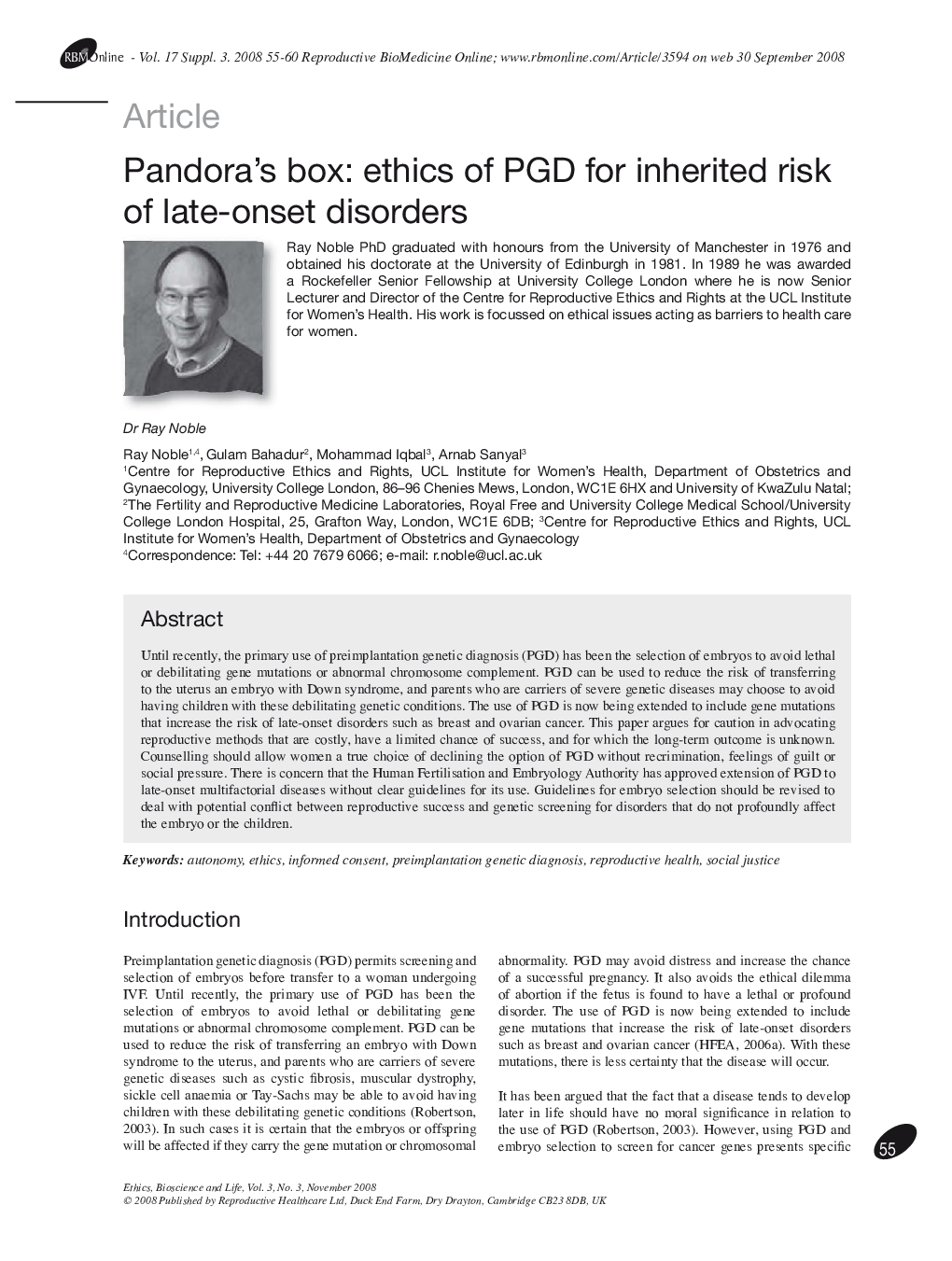| Article ID | Journal | Published Year | Pages | File Type |
|---|---|---|---|---|
| 3972907 | Reproductive BioMedicine Online | 2008 | 6 Pages |
Until recently, the primary use of preimplantation genetic diagnosis (PGD) has been the selection of embryos to avoid lethal or debilitating gene mutations or abnormal chromosome complement. PGD can be used to reduce the risk of transferring to the uterus an embryo with Down syndrome, and parents who are carriers of severe genetic diseases may choose to avoid having children with these debilitating genetic conditions. The use of PGD is now being extended to include gene mutations that increase the risk of late-onset disorders such as breast and ovarian cancer. This paper argues for caution in advocating reproductive methods that are costly, have a limited chance of success, and for which the long-term outcome is unknown. Counselling should allow women a true choice of declining the option of PGD without recrimination, feelings of guilt or social pressure. There is concern that the Human Fertilisation and Embryology Authority has approved extension of PGD to late-onset multifactorial diseases without clear guidelines for its use. Guidelines for embryo selection should be revised to deal with potential conflict between reproductive success and genetic screening for disorders that do not profoundly affect the embryo or the children.
